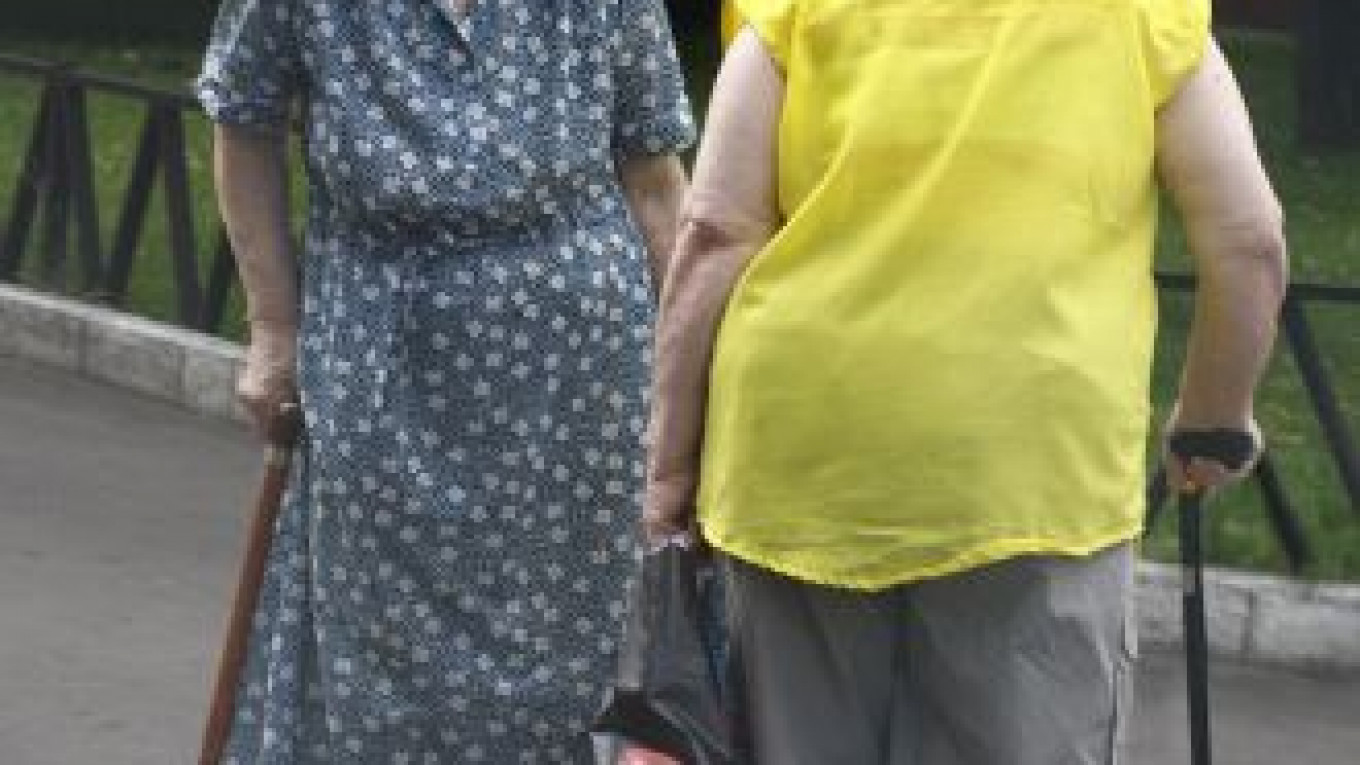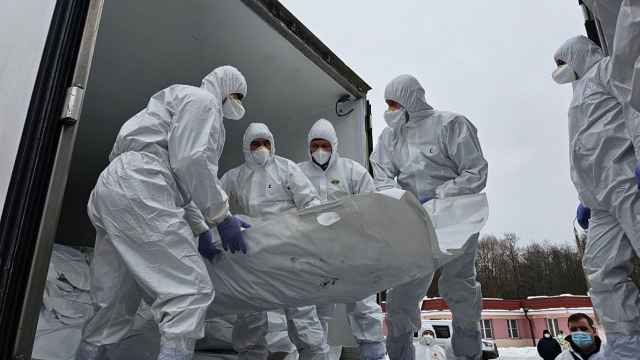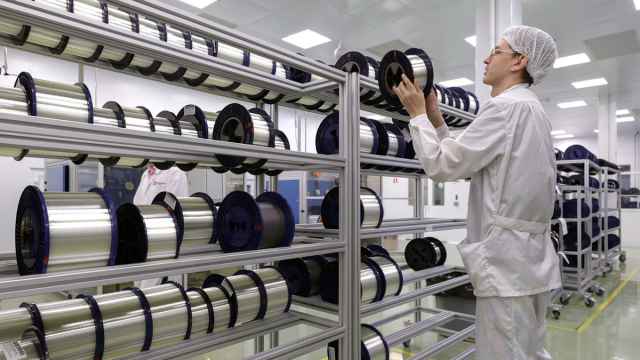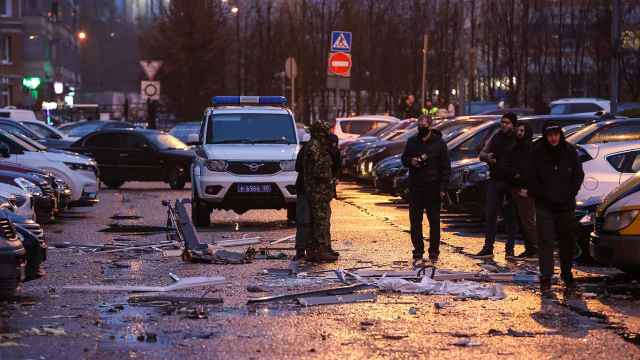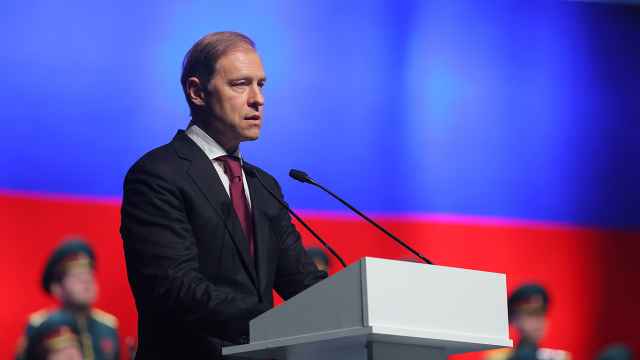The government expects the average pension to reach 24,000 rubles by 2023, up from the current 9,700 rubles, and is counting on reducing tax evasion as the biggest source of growth, deputy Prime Minister Olga Golodets said Thursday.
Only 48 million people of the 87 million in the country’s workforce pay taxes, “and that’s the biggest hidden source to increase pensions,” Golodets said.
“If all of us pay taxes fairly, those revenues will allow us to maintain high pension levels,” she told reporters after a Cabinet meeting.
The government also aims to identify sources to finance special pensions for those who worked in difficult conditions, provided exceptional service to the country, are children with only one parent or are disabled, Golodets said, adding that 10 million of Russia’s 40 million pensioners are entitled to preferential conditions.
The goal for the authorities is to identify imbalances in the pension system and determine how to eliminate them.
“The current pension system is very complicated … and young people cannot say what pension they’ll get when they retire,” Golodets said. “We need to make calculations and approaches clear.”
To improve the quality of the pension system, the government drafted a pension reform project to be carried out between 2012 and 2030. It was sent to the Kremlin earlier this week.
The document, published on Rossiiskaya Gazeta’s website, outlines changes to the existing pension system and the major steps to bring them to fruition.
Meanwhile, Prime Minister Dmitry Medvedev’s spokeswoman, Natalya Timakova, said Monday that the pension reform proposal might undergo some changes, as the Kremlin will discuss it with experts, RIA-Novosti reported. The Open Government expert group will also review it.
Golodets said the government would draft the first bills to implement the steps outlined in the project by Dec. 15.
The current pension scheme, introduced in 2002, envisages that employers pay 22 percent of an employee’s salary to the pension fund.
Of that sum, 16 percent goes to pay pensions to existing pensioners, while 6 percent — the so-called cumulative part — is invested in equities by the state or private asset management companies, with the proceeds to be added to the pension fund.
Golodets had to acknowledge that the existing scheme has turned out to be ineffective, because inflation has eaten up the investment return of most participants.
Based on these negative results, the government has to change “the attitude to the cumulative system, financial institutions and guarantees of citizens’ incomes,” she said.
The draft pension reform proposes to cut the share of the cumulative part in the total pension contribution to 2 percent.
Related articles:
A Message from The Moscow Times:
Dear readers,
We are facing unprecedented challenges. Russia's Prosecutor General's Office has designated The Moscow Times as an "undesirable" organization, criminalizing our work and putting our staff at risk of prosecution. This follows our earlier unjust labeling as a "foreign agent."
These actions are direct attempts to silence independent journalism in Russia. The authorities claim our work "discredits the decisions of the Russian leadership." We see things differently: we strive to provide accurate, unbiased reporting on Russia.
We, the journalists of The Moscow Times, refuse to be silenced. But to continue our work, we need your help.
Your support, no matter how small, makes a world of difference. If you can, please support us monthly starting from just $2. It's quick to set up, and every contribution makes a significant impact.
By supporting The Moscow Times, you're defending open, independent journalism in the face of repression. Thank you for standing with us.
Remind me later.


